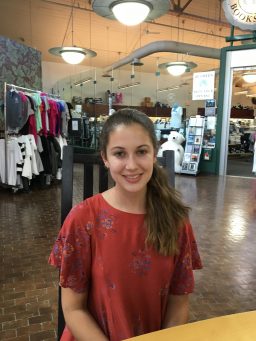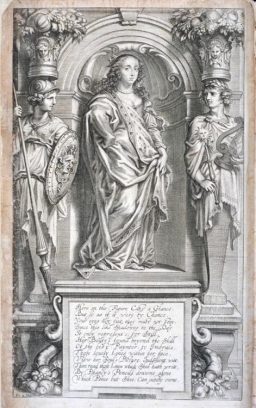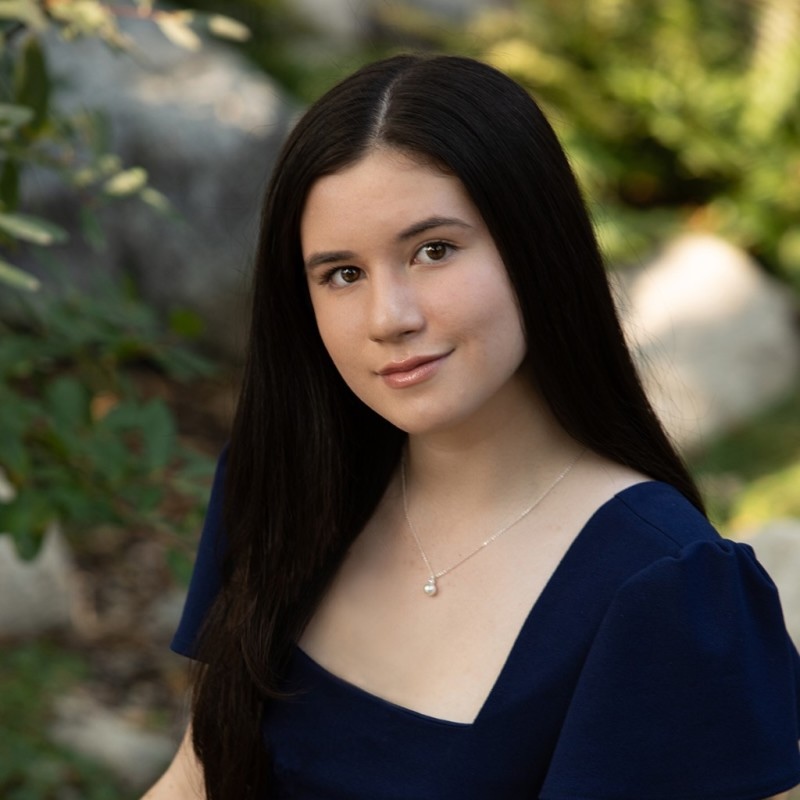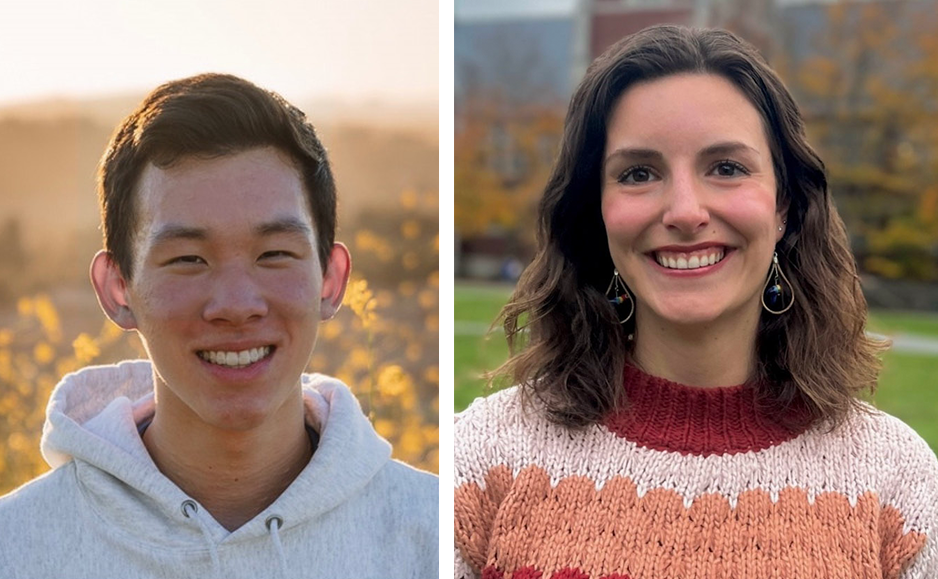Senior Uses Summer Fellowship to Examine Literature By and About Women in the Renaissance
By Tom Porter
Madison Wolfert ’17 probably has a heavier summer reading list than most of us. “I haven’t counted all the books I’m reading this summer, but so far I would say I have read parts of twenty-five to thirty books.” That is not surprising when you consider that her aim is, quite literally, to come at the Renaissance period from every conceivable angle. The reading list starts with classical Greek philosophers like Plato and Aristotle and spans contemporary theorists like Donna Haraway and Slavoj Žižek. “I’m particularly interested in studying the duality of art and nature during that period, and how that played into the way women were portrayed,” said Wolfert.
A recipient of the Stahl Summer Research Fellowship, Wolfert is immersing herself in the world of Renaissance literary theory so she can hit the ground running come fall and hopefully get a head start on her honors project. “I want to specialize in the literary treatment of females during the Renaissance because there was this prevailing distrust of women, centered around the idea that they were somehow artificial, that they altered their appearance through cosmetics in a way that made them less real than men. It’s as if women were attempting to ‘pull a fast one’ on guys and pretend to be more attractive than they actually were,” said Wolfert.

A recipient of the Stahl Summer Research Fellowship, Wolfert is immersing herself in the world of Renaissance literary theory so she can hit the ground running come fall and hopefully get a head start on her honors project. “I want to specialize in the literary treatment of females during the Renaissance because there was this prevailing distrust of women, centered around the idea that they were somehow artificial, that they altered their appearance through cosmetics in a way that made them less real than men. It’s as if women were attempting to ‘pull a fast one’ on guys and pretend to be more attractive than they actually were,” said Wolfert.
After Bowdoin, Wolfert aims to attend grad school and become a professional Renaissance scholar, which is why she began her summer research reading Aristotle and Plato. “Classical Greek philosophy was big during the Renaissance and those two writers in particular would have been part of the core curriculum at any university. Consequently anyone writing during the Renaissance, which for my purposes stretches until the 1600s, would have read Aristotle and Plato, which is why it was an important starting place for me.”
Another key figure is Margaret Cavendish, the seventeenth-century British noblewoman, who was also a scientist and a prolific writer of prose, poetry and philosophy. “She wrote a fantastic book called The Blazing World, a sort of utopian romance, which is often described as the world’s first work of science fiction,” said Wolfert, who is carrying out her research under the supervision of Associate Professor of English Aaron Kitch. Cavendish, she explained, was highly critical of the mechanical philosophy of the time and an exponent of natural philosophy. “This dynamic between art and nature was central to much of Cavendish’s work, and was a really big issue at the time, so my intention now is to use this dynamic as a theoretical framework to examine a wide range of literature related to that period.”

Wolfert’s goals over the summer include writing an abstract on this topic in the hope it will be accepted as an honor’s project next semester. She’s also diving into Shakespeare to produce a ten-page essay on A Winter’s Tale, one of the bard’s later works, which has been described as both a comedy and a romance. “Shakespeare wrote a lot about women, and in A Winter’s Tale he draws heavily on the themes of artifice and nature: for example there’s a statue of a woman in the play that comes to life.”
Misogyny was rife in those days, said Wolfert, “but it was a misogynistic period and values were very different. People looked at biology and sex in completely different ways, but I don’t think that makes the literature of the day any less valuable, and you just have to keep that in mind as you read.”
Wolfert is one of about 200 students working on campus over the summer engaged in faculty-mentored research.



